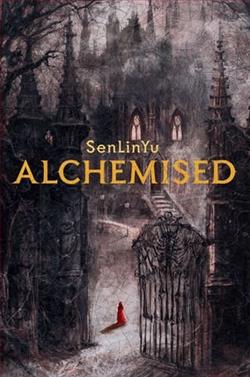Page 117 of The Heir
On the fifth day, the duchess came to call with Morgan. While Anna and Morgan chatted volubly in the back gardens, the duchess took her son aside and pointed out some difficult truths.
Anna was the acknowledged granddaughter of an earl, and the danger of infection was diminishing with each day.
Morgan missed her sister.
The earl’s offers of marriage had been rejected not once but several times.
The earl was running a bachelor establishment, not just for himself but for his two equally unmarried brothers.
Something was going to have to be done, the duchess concluded, her preferredsomethingobvious to her son.
“Give me a couple more days,” the earl reasoned. “Anna is still uncomfortable, and even a short carriage ride will be difficult for her.”
“I can understand that,” the duchess said, “and she deserves some notice of a change of abode, but, Westhaven, what will she do now?”
“We’ve discussed it, we’ll discuss it some more. Plan on receiving her the day after tomorrow before tea time.”
“Morgan will be very pleased.” The duchess rose. “You are doing the right thing.” The earl nodded, knowing his mother spoke the truth. It was time to let Anna get on with her life and to stop hoarding up memories of her for his own pleasure.
Her convalescence had been pleasant. They’d spent hours together, mostly talking, sometimes reading. The earl worked on his correspondence while Anna slept or while she dozed in the shade of the gardens. They talked about the Rosecroft estate up in Yorkshire and the effect of her brother’s lack of heirs; they talked of Morelands and how pretty it was. He apprised her of the rebuilding of the stables at Willow Bend and brought her correspondence from the Marchioness of Heathgate and Gwen Allen, wishing her a speedy recovery.
When those good wishes made her cry, he lent her his handkerchief and his sturdy shoulder and brought her bouquets to cheer her up, and still, they did not talk about what mattered.
“Has my mother put you to rights?” the earl asked. He looked handsome to Anna, in shirtsleeves and waistcoat, his cuffs turned back as he wandered onto the back terrace where she was enjoying the sunshine on a chaise.
“She clucked and fussed and carried on appropriately,” Anna said. “I am to make a speedy and uneventful recovery by ducal decree.”
“Your grandmother will be here late next week, you know, if all goes well.” Westhaven sat on the edge of her chaise, regarding her closely. “You don’t look so pale, I’m thinking.”
“I don’t feel so pale,” she assured him. “I’ve not taken the time to just sit in the sun for more than two years, Westhaven. It’s bad for one’s ladylike complexion, but in the North, we crave the sun.”
“Will you be going back there?”
Anna fingered the cuff of her sleeve. “I do not want to. I want to remember Rosecroft as it was in my grandfather’s day, not in the neglect and disrepair my brother allowed.”
“You don’t ask about him,” Westhaven said, taking her hand.
“I assume he is malingering.”
“He is not doing well. It’s to be expected.”
“And Stull?”
“Made bond. But seems content to await trial at the Pig. I did bring trespass charges, just for the hell of it, and assault and conspiracy to assault in your name, as well.”
“Will any of it stick?”
The earl smiled, and the expression had a lot of big, white, sharp teeth to it. “It’s a curious thing about assault, but it’s both a tort and a crime.”
“A tort?” Anna frowned.
“A civil wrong for which the law provides a remedy.” The earl quoted. “Like, oh, slander, libel, and the like.”
“You are saying I can sue him personally, not just bring criminal charges?”
“You already have,” the earl informed her. “On the advice of the duke, of course.”
“Why would I do such a thing, when lawsuits take forever to resolve, and all I want is to be shut of that man immediately?”















